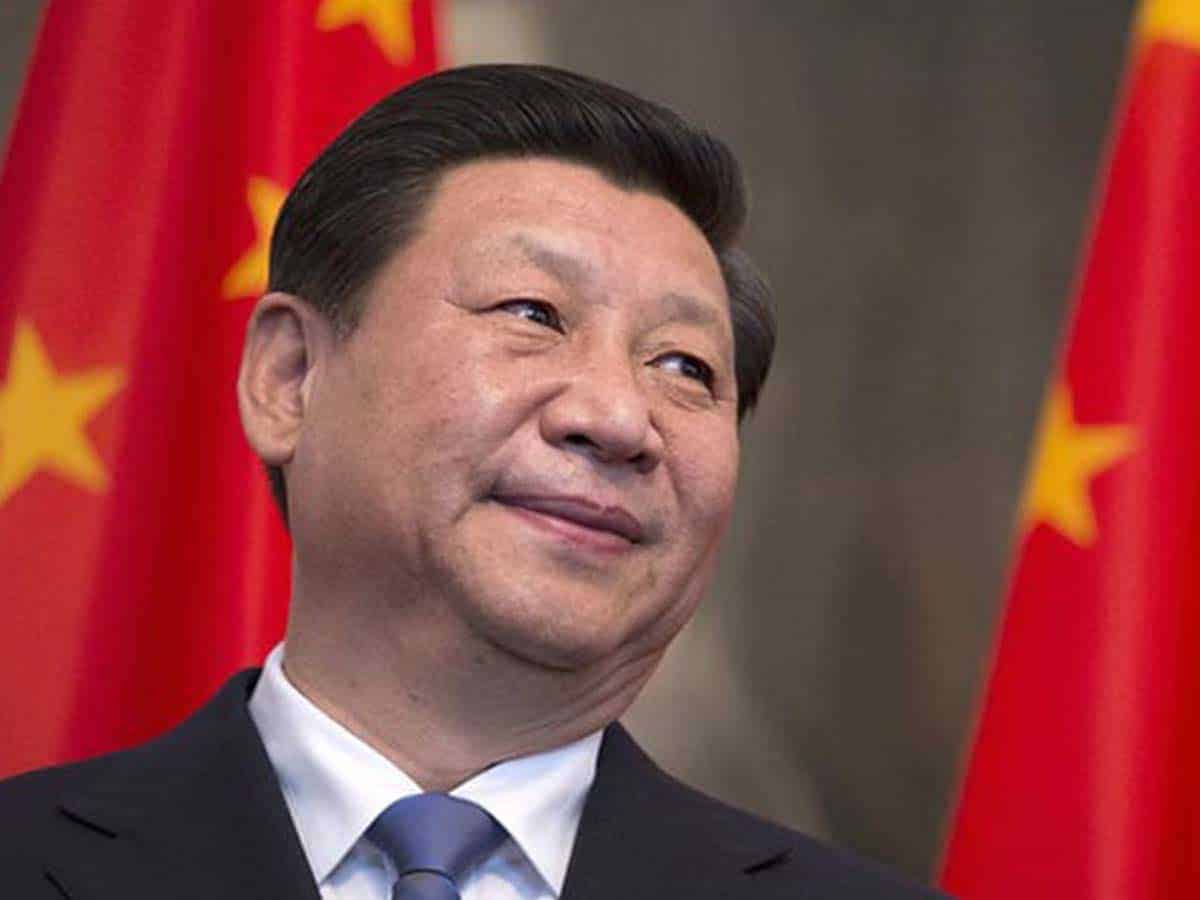Washington: As President Xi Jinping prioritizes security goals and repression over reforms, China is unlikely to achieve economic and social development target by 2035 promised by the Chinese leader, a foreign affairs expert said.
In an opinion piece in Foreign Policy magazine, Salvatore Babones, an adjunct scholar at the Centre for Independent Studies in Sydney, wrote that economic growth is certainly still a high priority for the Chinese Communist Party (CCP), but domestic repression now ranks higher and Xi’s preference for security goals over economic ones extends beyond China’s borders.
“He (Xi) first floated his goals for 2035 in a party congress speech three years ago and has now enshrined them in doctrine. In Xi’s vision, China’s economy will reach a “new level”–but so will the government’s capacity to monitor and control it. And that marks a crucial change in priorities: Although Xi cares about growth as his predecessors did, he cares about control much, much more,” he wrote.
“His new brand of ‘wolf warrior’ diplomacy is costing China its foreign markets for products and services. Take India: Chinese technology giants such as Huawei, Alibaba, and TikTok were well on their way to market dominance in the world’s second-most populous market until Chinese border troops killed 20 Indian soldiers in hand-to-hand fighting in Ladakh in June. In the ensuing backlash, Chinese smartphone makers faced consumer boycotts. Chinese apps have been almost entirely banned in the Indian market,” he added.
Babones said that Xi has thrown more than a million Uyghurs into forced labour camps and has imposed a draconian National Security Law in Hong Kong and reactivated dormant party committees in private companies.
Babones mentioned the actions taken by the Chinese regime against billionaire Jack Ma after the latter criticised regulators.
“Beijing announced it was investigating Alibaba Group, the online retail giant also founded by Ma, and last week ordered him to essentially break up Ant. Advocacy for economic reform, tolerated by previous CCP leaders as necessary for nudging the country in the right direction, is now considered tantamount to treason,” he wrote.
The scholar also said that China’s “frosty” relations with other countries are hurting China’s economic growth in those countries.
“China has clashed with Indonesia–another important Asian market–over control of the South China Sea, prompting Jakarta to turn to Japan for help with a flagship high-speed rail project. Also in the South China Sea, Chinese vessels have harassed Malaysian oil exploration efforts, accelerating a deterioration in relations that began when former Prime Minister Mahathir Mohamad returned to power in 2018 on a promise to renegotiate lucrative Chinese development contracts. China has even picked a fight with Australia, once its closest partner outside Asia, refusing to unload Australian coal and slashing other imports in retaliation for Australian moves to limit Chinese interference in its internal politics,” he said.
Xi’s prioritization of domestic and foreign security goals over economic ones will make it much more difficult for China to meet its 2035 targets, he added, adding that Xi insists he can still deliver on the GDP target he agreed to eight years ago.
“If it meets expectations, growth during the first half of 2021 will be sufficient to push the Chinese economy over the arbitrary “moderately prosperous society” line. (And if actual growth falls short, the numbers can always be massaged into compliance.) Either way, China’s first-half GDP figures will be released just in time to headline the centenary celebrations on July 23,” he further wrote.

